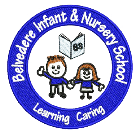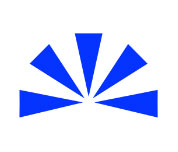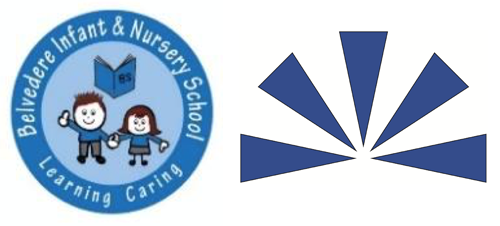Home | Learning | Curriculum | Subjects | English
English
Home | Learning | Curriculum | Subjects | English
English
Two
Schools
One
Vision
English
English Curriculum Rationale
At Belvedere Infant School and Junior schools, we promote a love of reading, writing and drama, as well as equipping children with the phonetical, comprehension, spelling, grammar and punctuation skills needed to be adept and fluent readers and writers.
Phonics
Early Reading – Synthetic Phonics
When children join our school, in Nursery, they begin to learn about sounds around them and learn about stories and the pleasure of reading. In Reception, they begin to use synthetic phonics to learn to read words. The name Synthetic Phonics is used – not because it is made up language but because words are broken up into the smallest sounds. Although there are 26 letters in the English Alphabet – there are 44 phonemes – or sounds made by these letters. Our children are taught to decode these sounds so that they can start to read (decode) and spell (encode) at the same time. Our children, from Nursery to Year 2, have a dedicated time, each day, specifically dedicated to the teaching of phonics. This is in addition to listening to children read and reading to our children so that we immerse them in literature from an early age.
There are many recognised schemes for teaching phonics; the one that we use at Belvedere Infant School is: DFE accredited Little Wandle Letters and Sounds programme. All of our children follow this scheme and all adults in Early Years and Key Stage One have undertaken specific training to deliver this programme effectively.
Letters and Sounds is split into 6 phases and the programme finishes, for most children, at the end of the Autumn term, in Year 2. A Phonics screening check is carried out with all children nationally in the Summer Term of Year 1. Children who do not pass this screener in Year 1, have additional support to help them successfully pass in the summer Term of Year 2.
Teaching Early Reading – Nursery to Year 2
Foundations for phonics in Nursery
From the Autumn term, we provide a balance of child-led and adult-led experiences for all children that meet the curriculum expectations for ‘Communication and language’ and ‘Literacy’. These include:
- sharing high-quality stories and poems
- learning a range of nursery rhymes and action rhymes
- activities that develop focused listening and attention, including oral blending
- attention to high-quality language.
In the Spring Term, Nursery also begin to take part in phonic lessons where they continue to focus on phase 1 listening skills, as well as exposing the children to the 26 letters and sounds in the alphabet. These lessons are planned on a weekly cycle and ensure the children are well prepared to learn and consolidate grapheme-phoneme correspondences (GPCs) and blending in Reception.
Daily phonics lessons in Reception, Year 1 and Year 2
In these year groups, we teach phonics for 20/30 minutes a day and follow the Little Wandle Letters and Sounds Revised expectations of progress:
- Reception: are taught to read and spell words using Phase 2 and 3 GPCs, and words with adjacent consonants (Phase 4) with fluency and accuracy.
- Year 1: review Phase 3 and 4 and are taught to read and spell words using Phase 5 GPCs with fluency and accuracy.
- Year 2: review phase 5 phonics (Autumn term)
Assessment of Phonics
Regular teacher assessment is used to monitor progress and to identify any child needing additional support as soon as they need it.
- Assessment for learning is used:
- daily within class to identify children needing ‘Keep-up’ support
- weekly in the Review lesson to assess gaps, address these immediately and secure fluency of GPCs, words and spellings.
- Summative assessment is used:
- every six weeks to assess progress, to identify gaps in learning that need to be addressed, to identify any children needing additional support and to plan the ‘Keep-up’ support that they need.
Statutory assessment
Children in Year 1 sit the Phonics Screening Check. Any child not passing the check re-sits it in Year 2.
Phonics in KS2
We use Little Wandle Rapid Catch-up programme to support children requiring additional practice with phonics and reading. This programme mirrors the core Little Wandle programme and has been carefully designed for children aged 7 and above to catch up quickly.
Please click here to access the parents’ page of the website: https://www.littlewandlelettersandsounds.org.uk/resources/for-parents/

Phonics and Early Reading Policy
Reading
At Belvedere Infant and Junior Schools, we highly value reading. Not only as a crucial life skill but also as a skill that will bring pleasure and aid wellbeing. We aim to develop children who read frequently and enjoy reading for pleasure. We have a strong focus on language development for our children because we know that speaking and listening are crucial skills for reading and writing in all subjects.
We teach the full National Curriculum for English. The skills that children are taught in Literacy underpin all other subjects. They enable pupils to communicate and express themselves in all areas of their work. There are three main skills that we aim to teach our children, during their time with us: Fluency, Comprehension and word recognition. Although three very different skills, all are needed to become a fluent competent reader.
Teachers will always make cross-curricular links wherever appropriate and will plan for pupils to apply the skills, knowledge and understanding that they have acquired during Literacy to other areas of the curriculum
We believe that reading is central to a child’s understanding of the school curriculum and is of vital importance in life. We will develop a love and appreciation of reading which will stay with children for life. We will use good reading materials and resources to provide a breadth and range of reading material in school.
Our aim is to make our children readers who are equipped with the tools to tackle unfamiliar vocabulary and be resilient to enjoy challenging texts by using the skills of reading they are taught. We actively encourage our children to see themselves as readers for both pleasure and purpose. As children progress through our school, they build on their growing knowledge of the alphabetic code, mastering phonics to read and spell as they move through school.
Teachers regularly share a range of narrative and non-narrative texts with the whole class.
Each class has a book corner. As part of home reading, children should be selecting and reading a book appropriate to their level. We encourage parents/carers to hear their child read unless they are at a level where the pupils can assess their own reading. Feedback on home reading is made by parents/carers or pupils within the Home Reading Records.
Whole Class CUSP reading sessions take place for 30 minutes each day. Children who require additional support with reading normally receive more regular opportunities with another adult.
Long term Reading Sequence
Writing
Children at Belvedere Infant and Junior Schools are creative and imaginative writers. They have many opportunities throughout the week to write, edit and improve.
From Nursery to Year 6, high quality, motivating texts are used by the class teachers as a basis for children’s writing. The children are exposed to many different genres of writing and skills are developed in order to write independently at length. Alongside this, basic skills are taught which focus on the key skills for writing – Vocabulary, Conjunctions, Openers and Punctuation. Regularly across a term, in Key Stage 1, following a progression of sessions of input and practice, children have a chance to show off the skills learnt more independently. In the Early Years, mark-making and writing opportunities form part of everyday provision, both indoors and outdoors.
Children in Key Stage 1 and 2 use the CUSP scheme to form their English lessons which have been carefully mapped to ensure full coverage and progression from one year group to the next. CUSP has a strong focus on skills needed to ensure that our children become confident and competent writers.
Within their writing lessons children will cover a range of themes and genres while focusing on developing specific skills and within their reading lessons, children will have a suite of core texts that will form the depth study for the academic year. These texts represent a promise from the school to every pupil that it serves of the literature that it is committed to studying throughout a pupil’s school journey. These texts have been mapped carefully to ensure a breadth of experiences, authors, texts and themes is addressed across the Primary years.
We teach the full National Curriculum for English. The skills that children are taught in Literacy underpin all other subjects. They enable pupils to communicate and express themselves in all areas of their work. Teachers will always make cross-curricular links wherever appropriate and will plan for pupils to apply the skills, knowledge and understanding that they have acquired during Literacy to other areas of the curriculum.
Long term Writing Sequence



